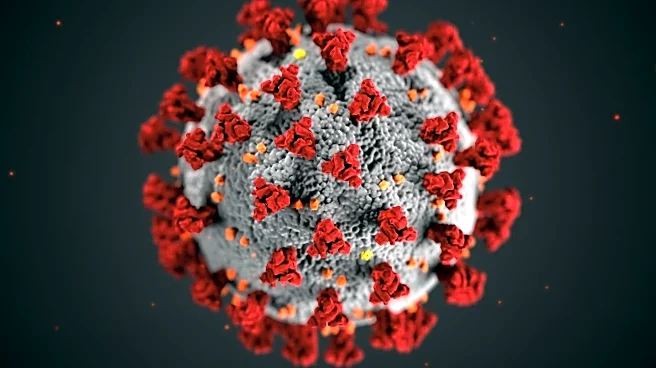What is the story about?
What's Happening?
The World Health Organization (WHO) has issued a warning about the potential for a chikungunya virus epidemic as the disease spreads beyond its usual geographic boundaries. Originally identified in Tanzania in 1952, chikungunya is transmitted by mosquitoes, particularly the Aedes aegypti and Aedes albopictus species. The virus causes symptoms such as fever and severe joint pain. Currently, an estimated 5.6 billion people across 119 countries are at risk, with the virus spreading to Europe and other continents. WHO officials have expressed concern that the current situation mirrors a previous epidemic between 2004 and 2005, which affected nearly half a million people.
Why It's Important?
Mosquito-borne illnesses, including chikungunya, pose significant public health challenges, causing nearly 800,000 deaths annually worldwide. The spread of these diseases is exacerbated by global warming, which expands the habitats of mosquitoes. The chikungunya virus's potential epidemic could have widespread health implications, particularly in regions with warm, wet climates where mosquitoes thrive. The lack of specific treatments for chikungunya underscores the importance of preventive measures, such as controlling mosquito populations and preventing their breeding.
What's Next?
Efforts to combat mosquito-borne illnesses include the development of vaccines and innovative population control methods. In the United States, two types of vaccines are available, and symptom relief can be achieved with medications like acetaminophen. In California, vector control officials are working on sterilizing male mosquitoes to reduce populations. Additionally, scientists in Burkina Faso are developing a mosquito-killing fungus to be used during mosquito mating. These strategies aim to mitigate the spread of chikungunya and other mosquito-borne diseases.
Beyond the Headlines
The chikungunya virus's spread highlights the broader implications of climate change on public health. As global temperatures rise, the expansion of mosquito habitats could lead to increased transmission of various diseases. This situation calls for a reevaluation of public health strategies and emphasizes the need for global cooperation in addressing climate-related health challenges.















